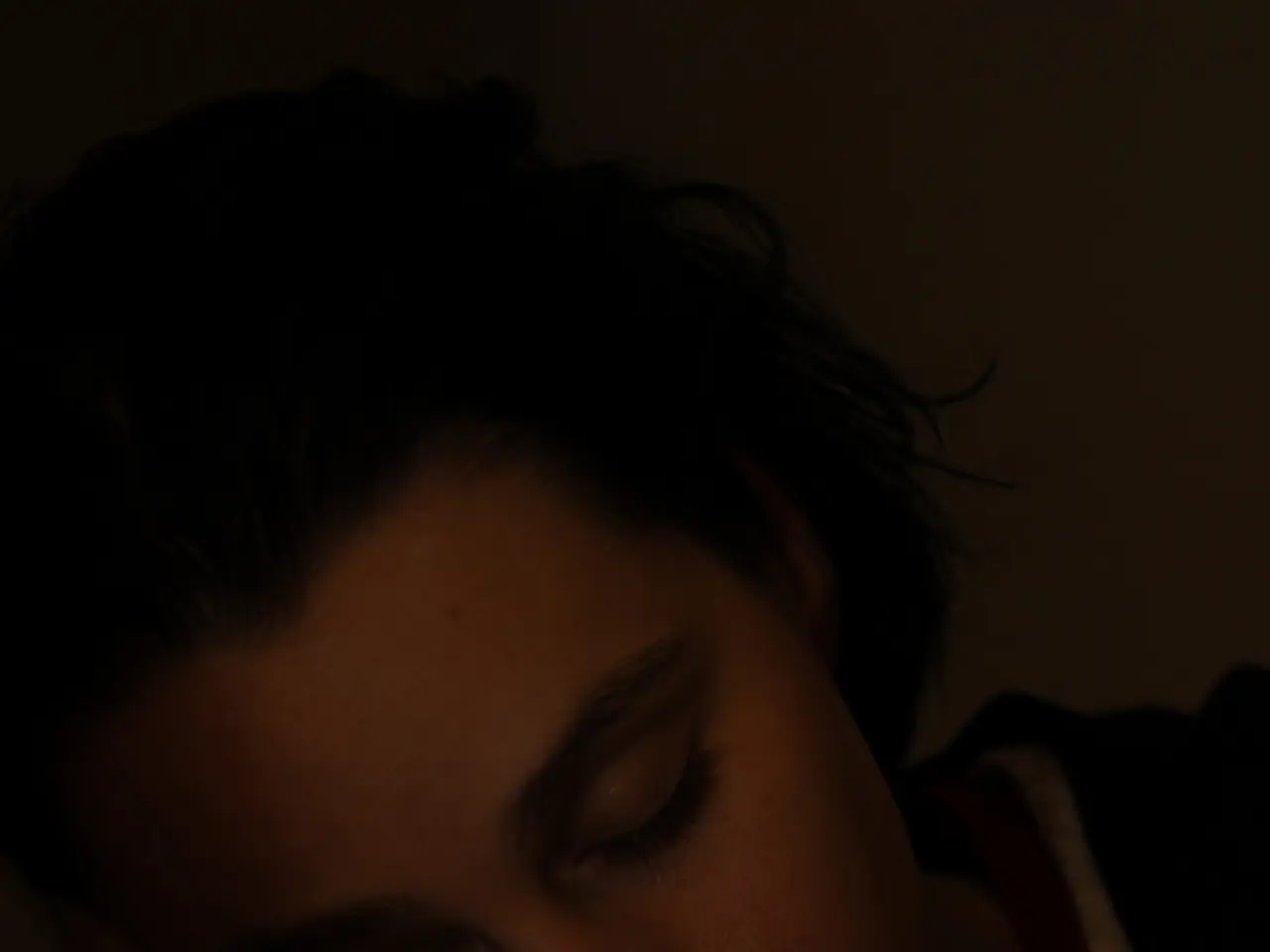Impact of Marijuana on Sleep Quality Explored
In the realm of sleep research, a growing conversation is taking place within the medical community about the impact of cannabis on sleep patterns. This dialogue, fueled by advancements in research, is shedding light on the intricate relationship between the two.
Despite the modest increase in slow-wave sleep observed in sleep lab studies, the relationship between cannabis and sleep remains in its scientific infancy. Limited clinical research exists due to cannabis's classification as a Schedule I substance.
High-CBD products, when taken consistently, show promise in regulating sleep cycles without the high or withdrawal effects often associated with THC. However, long-term cannabis use for sleep tends to have mixed to negative impacts on sleep quality. Frequent use is linked to less total sleep, less deep sleep, longer time to fall asleep, and more awakenings.
Some users report that cannabis helps them fall asleep faster and stay asleep longer, especially during the initial days or weeks of use. Yet, when researchers account for anxiety and depression, the differences in sleep quality between daily cannabis users and non-users vanish.
The kind of cannabis strain and cannabinoid profile also matters. CBD-rich strains generally improve sleep quality and reduce anxiety more consistently, whereas THC-heavy strains have more variable effects. Clinical trials have shown promise for cannabis, particularly THC+CBD oral oils, in improving insomnia symptoms in the short term without serious adverse effects.
However, these results come with caveats. Small sample sizes, inconsistent dosing, and the need for more large-scale studies to confirm long-term safety and efficacy are among the challenges. Reviews also emphasize the heterogeneity in cannabis products, dosing, and study methods, making clear conclusions difficult. Many studies report no improvement or even worse sleep outcomes with cannabis, especially over long periods.
As the future of cannabis-sleep research is still several years, if not decades, away, the question "Does weed help or hurt sleep?" is not as useful as understanding "What kind of sleeper am I, and how does cannabis fit into that story?" The answers to cannabis's impact on sleep will come from paying close attention to one's own experience and being willing to change course when the results stop serving you.
Withdrawal symptoms - even from short-term use - often include nightmares, increased awakenings, and difficulty falling asleep. High-THC strains can also increase next-day grogginess and lead to rebound insomnia when discontinued.
Researchers are beginning to explore how different cannabinoid profiles affect specific sleep disorders, whether CBD-only products can deliver consistent sleep benefits, how cannabis interacts with circadian rhythms, and if personalized cannabinoid prescriptions could replace blanket sleep medications.
Pharmaceutical-grade cannabis products like Marinol, Nabilone, and others have been prescribed explicitly for sleep disturbances. Some indica-dominant strains, with high THC and moderate CBD, may reduce time to fall asleep. Yet, long-term cannabis use can create a dependency in the brain, causing confusion and disruption when it is discontinued.
In summary, while cannabis may temporarily aid sleep onset and reduce insomnia symptoms, frequent and long-term cannabis use often deteriorates sleep quality and poses mental and physical health risks. CBD-rich products tend to be more consistently beneficial for sleep and mood, but more rigorous and standardized research is needed. Users and clinicians must carefully weigh potential benefits against risks, consider strain and dosage carefully, and monitor outcomes over time.
Good sleep isn't about sedation; it's about restoration. Cannabis might knock you out, but it may not provide the deep, healing rest the brain needs.
- The medical community is having a growing conversation about the impact of cannabis on sleep patterns, particularly in terms of research related to science.
- Limited clinical research exists because cannabis is classified as a Schedule I substance, making it hard to conduct comprehensive studies on its effects.
- High-CBD products, when taken consistently, demonstrate potential in regulating sleep cycles without the high or withdrawal effects often associated with THC.
- Long-term cannabis use for sleep tends to have mixed to negative impacts on sleep quality, leading to less total sleep, less deep sleep, longer time to fall asleep, and more awakenings.
- Some users report that cannabis helps them fall asleep faster and stay asleep longer, but these benefits tend to diminish over time or vanish when anxiety and depression are taken into account.
- The kind of cannabis strain and cannabinoid profile matter in terms of their effects on sleep quality and anxiety; CBD-rich strains generally improve sleep quality and reduce anxiety more consistently.
- Clinical trials have shown promise for cannabis, particularly THC+CBD oral oils, in improving insomnia symptoms in the short term without serious adverse effects, but these results require cautious interpretation due to small sample sizes and inconsistent dosing.
- The future of cannabis-sleep research is still several years, if not decades, away, so it's important for individuals to focus on understanding their sleep patterns and how cannabis may fit into their story.
- Withdrawal symptoms from short-term cannabis use - even from high-THC strains - can include nightmares, increased awakenings, and difficulty falling asleep, as well as next-day grogginess and rebound insomnia when discontinued.
- Researchers are investigating various areas, such as the effects of different cannabinoid profiles on specific sleep disorders, the potential use of CBD-only products, the impact of cannabis on circadian rhythms, and personalized cannabinoid prescriptions.
- Pharmaceutical-grade cannabis products have been prescribed for sleep disturbances, but long-term cannabis use can create a dependency in the brain and cause confusion and disruption when discontinued, while good sleep isn't just about sedation; it's about restoration, and it remains uncertain whether cannabis can provide the deep, healing rest the brain needs.





